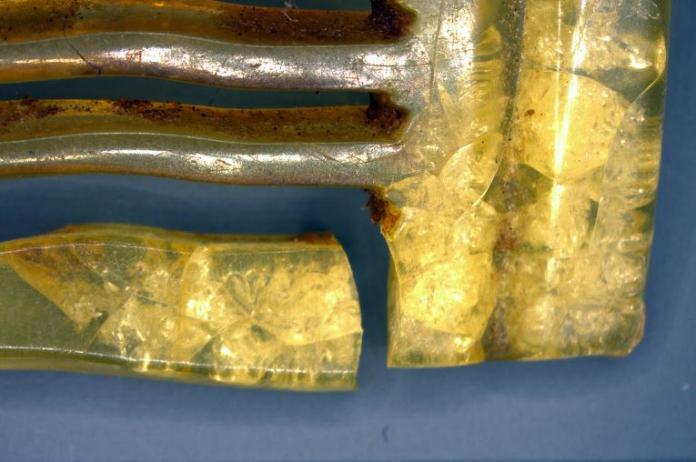
Location
onlineDate and time
-Plastics in Peril: Focus on Conservation of Polymeric Materials in Cultural Heritage
Plastic objects are found in every type of museum, ranging from mass produced objects in science and social history collections, to digital media tapes in archives, and to unique and valuable artworks. Unfortunately, some plastic artefacts are highly unstable and plastics in collections are a conservation time bomb.
This conference will discuss real-life approaches to caring for the plastics in our museums, including identification of materials, collection management and storage, conservation treatments, and packaging. Focusing on practical solutions, speakers from leading international institutions will share their experiences of analysing, conserving and caring for plastic heritage. Individual papers and keynotes will be complemented by a panel discussion and virtual coffee breaks to help us connect to one another in digital space. The conference brings together speakers and participants from the University of Cambridge Museums’ Plastics in Peril conference (unable to be held earlier in the year due to COVID-19) and a workshop of the Leibniz Museums within the series Conservation in Focus. It is funded by Aktionsplan Leibniz Forschungsmuseen II, a German federal and state government project grant to the Leibniz Research Museums.
Event information
- Virtual conference, November 16–19, 2020
- Registration (free of charge): https://survey.naturkundemuseum-berlin.de/en/plastics_in_peril_reg
- Contact: info.cec@mfn.berlin
- Programme: https://www.museums.cam.ac.uk/plastics-programme
- Abstracts: http://www.deutsches-museum.de/de/forschung/aktuelles/tagungen/plastics-in-peril/
Keynote Speakers
- Petronella Nel (Faculty of Arts, University of Melbourne)
- Jill Sterrett (Smart Art Museum, The University of Chicago)
- Thea van Oosten (Private Consultant, The Netherlands)
Panel discussion
“A blessing and a curse” – plastic collections in the modern world
Moderator: Katherine Curran (UCL Institute for Sustainable Heritage, London)
- Tim Bechthold (Die Neue Sammlung – The Design Museum, Munich)
- Mary Coughlin (The George Washington University, Washington, DC)
- Joy Mazurek (The Getty Conservation Institute, Los Angeles)
- Stefan Simon (Rathgen-Forschungslabor, Staatliche Museen zu Berlin)
Sessions
- “What am I?” – Identification of plastics
- “A goal without a plan is just a wish” – Collection management
- “Today’s and tomorrow’s sorrows” – Storage and global warming
- “From pop to blob” – Science driven decisions in plastics conservation
- “Pop, blob and back again” – Treatment techniques
- “Fit for the future” – Treatment options over time
- “A good atmosphere” – Packaging and micro-pollutants
University of Cambridge Museums
The University of Cambridge Museums is a consortium of the eight University Museums and the Cambridge University Botanic Garden. It represents the highest concentration of internationally important collections outside London in the United Kingdom. With more than five million works of art, artefacts, and specimens, the collections span four and a half billion years. The Museums and Garden open up the University’s cutting-edge research and marvellous objects for everyone to learn from and enjoy. The consortium aims at enabling more people to engage with its collections, expertise and research and works closely with the University’s other collections, as well as local and national partners. It is a proud member of the national University Museums Group and Cambridge Arts and Cultural Leaders.
Leibniz Research Museums
The eight Research Museums within the Leibniz Association collect objects, conduct research, and provide education-based learning through exhibitions and programs. Together, the Research Museums’ collections contain well over 100 million objects that provide the basis for research into the earth, its history and biodiversity. Scientific conservation programmes help to preserve objects as well as natural and cultural heritage. With research-based permanent and special exhibitions at 12 locations across Germany, Leibniz Research Museums increase understanding of research as a process, and allow people to critically evaluate science and society. The workshop series Conservation in focus was established by the Leibniz Research Museum network on restoration and conservation.